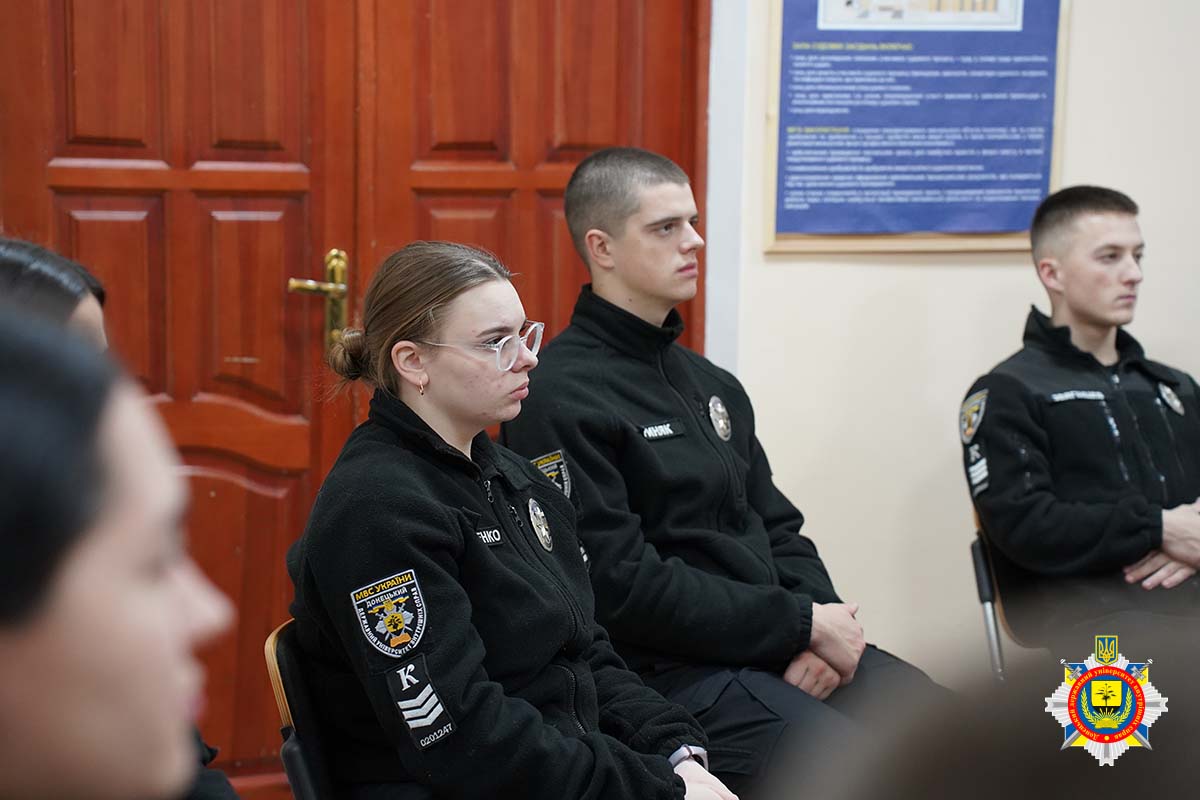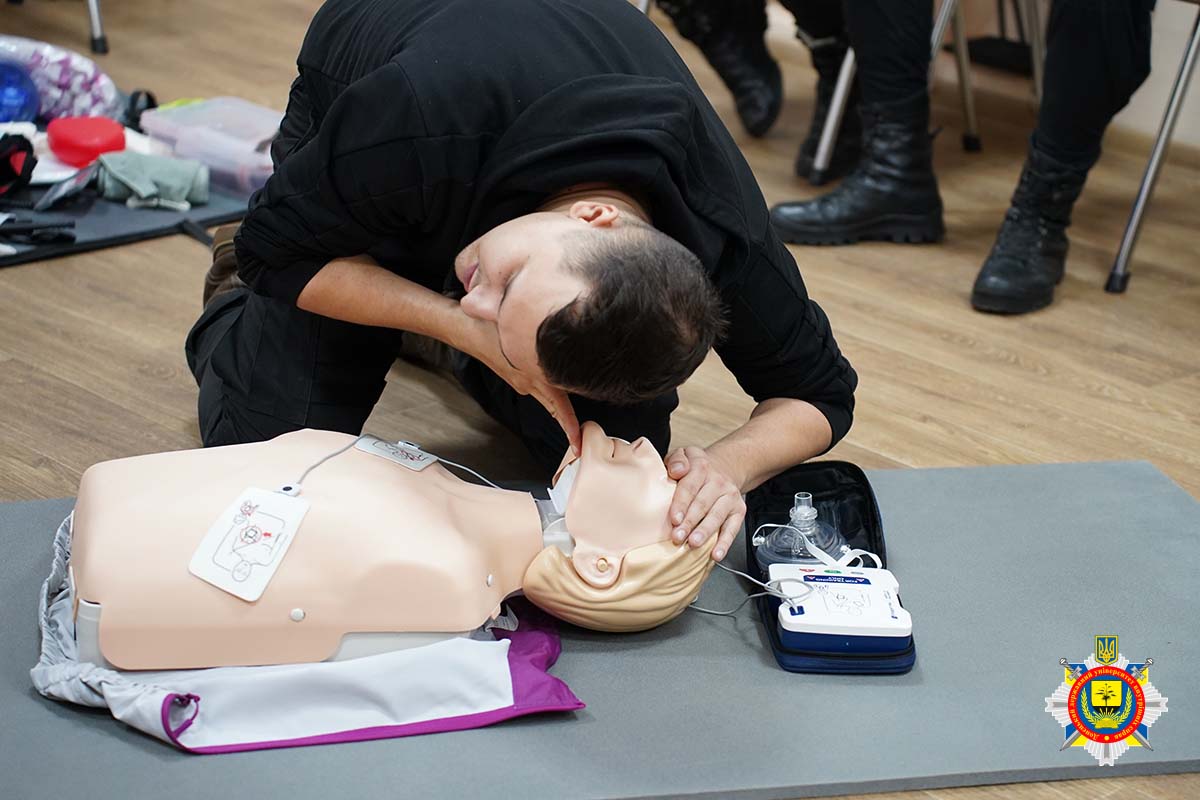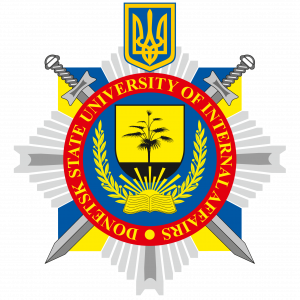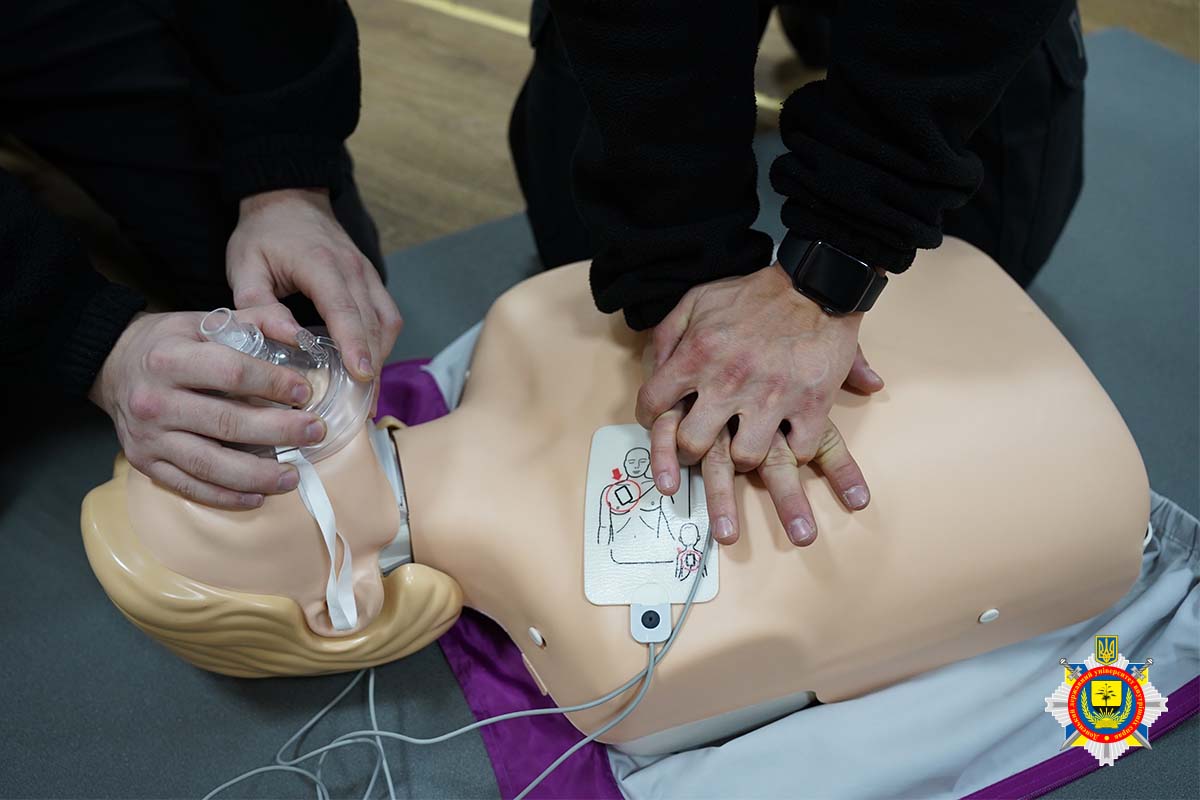Stanislav Lysenko, a certified specialist, taught cadets of the faculty of training specialists for Police Units to provide first aid to themselves, their injured comrades, and injured citizens. The Emergency Medical Aid Agency organized specialized training on first aid for injuries.
“This is knowledge and skills on demand. You need to be able not to get confused, to help in order to preserve health and life for yourself or other people. Currently, danger can lurk not only on the battlefield, but also in the of the city сenter due to the arrival of missiles,” Stanislav Lysenko noted.
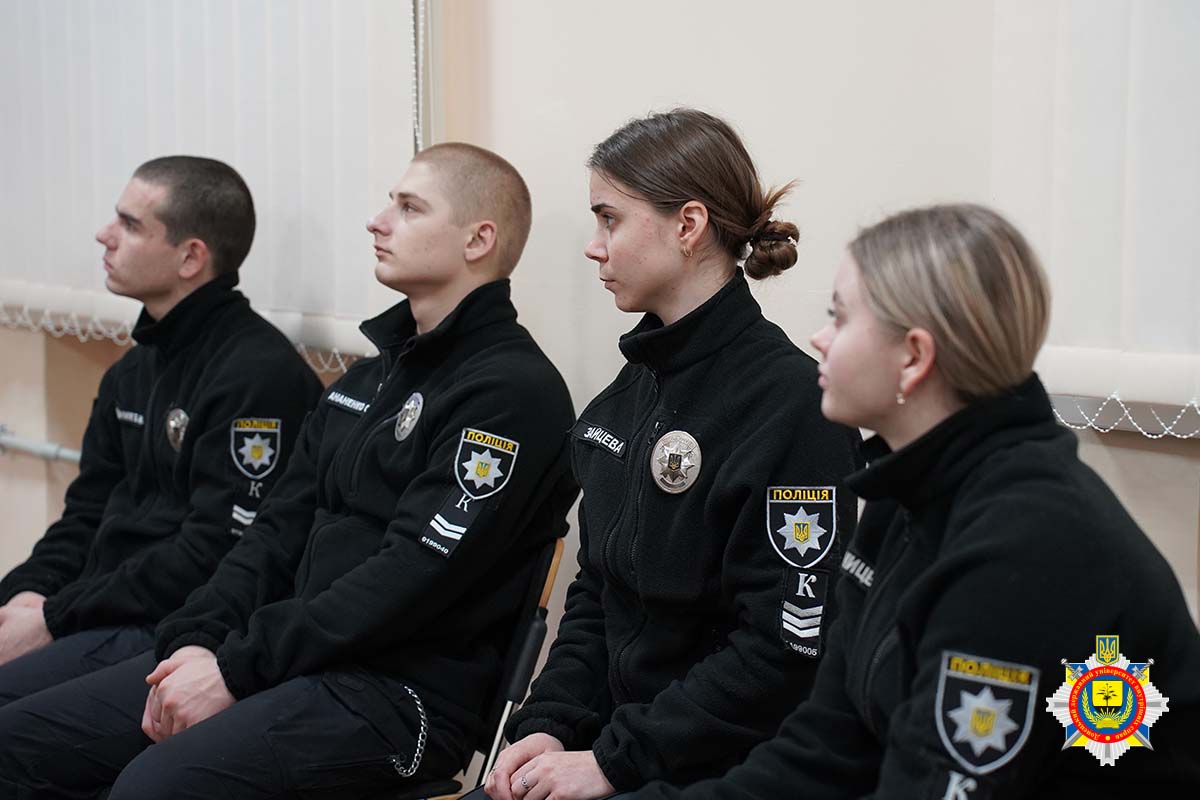
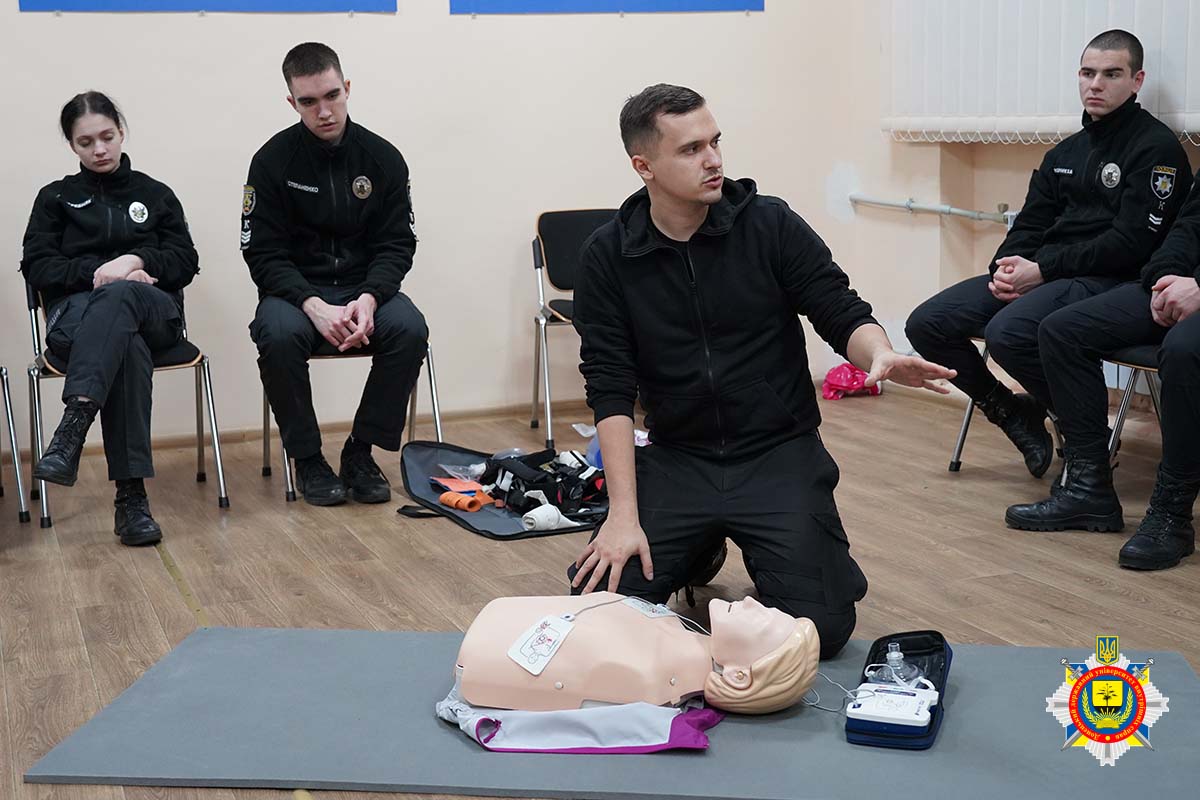 He conducted a detailed instruction on providing first aid for wounds and injuries received in combat conditions. Theory was combined with practice – the cadets applied the knowledge they had acquired, worked out and consolidated the skills of helping themselves and their colleagues. They learned to distinguish the zones of assistance (red, yellow and green) and found out the algorithms of actions in case of injuries within each of them. Besides, higher education seekers familiarized themselves with the contents of an individual first-aid kit.
He conducted a detailed instruction on providing first aid for wounds and injuries received in combat conditions. Theory was combined with practice – the cadets applied the knowledge they had acquired, worked out and consolidated the skills of helping themselves and their colleagues. They learned to distinguish the zones of assistance (red, yellow and green) and found out the algorithms of actions in case of injuries within each of them. Besides, higher education seekers familiarized themselves with the contents of an individual first-aid kit.
The instructor taught those present to provide assistance in case of injuries and critical bleeding, to apply tourniquets and to perform tamponading in the neck, armpit and groin areas. He talked about an improvised twist tourniquet and how to properly make it from improvised means, if the need arises. Stanislav Lysenko demonstrated the Esmarch tourniquet and explained why it is impractical and even dangerous to use it. The instructor specially focused on injuries of the head (skull), eyes and abdomen, told and showed how to restore the patency of the respiratory tract and prevent hypothermia.
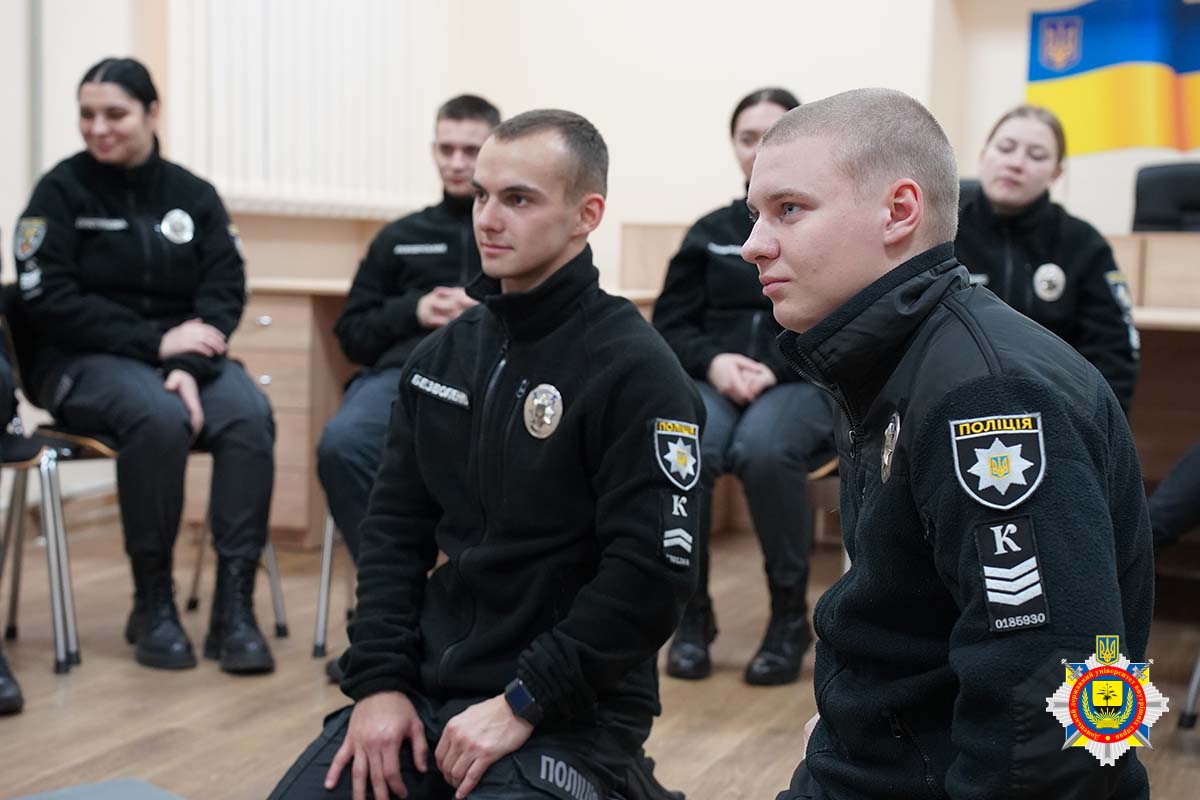 The participants practiced providing first aid in accordance with the CABC algorithm (Critical bleeding, Airways, Breathing, Circulation), which is a guide for medical personnel and police officers who are in a war zone. It contains the main sequential points of care, including: stopping life-threatening bleeding; ensuring patency of the respiratory tract; closure of all open chest wounds; complete examination of the wounded, stopping of bleeding, diagnosis of shock; detection of head injuries and prevention of hypothermia.
The participants practiced providing first aid in accordance with the CABC algorithm (Critical bleeding, Airways, Breathing, Circulation), which is a guide for medical personnel and police officers who are in a war zone. It contains the main sequential points of care, including: stopping life-threatening bleeding; ensuring patency of the respiratory tract; closure of all open chest wounds; complete examination of the wounded, stopping of bleeding, diagnosis of shock; detection of head injuries and prevention of hypothermia.
“Before leaving for training at the front-line units of the National Police, it is very important that each of us should know and be able to provide first aid effeciently. When it comes to saving lives, every minute counts,” said cadet Danylo Bezvolenko.
